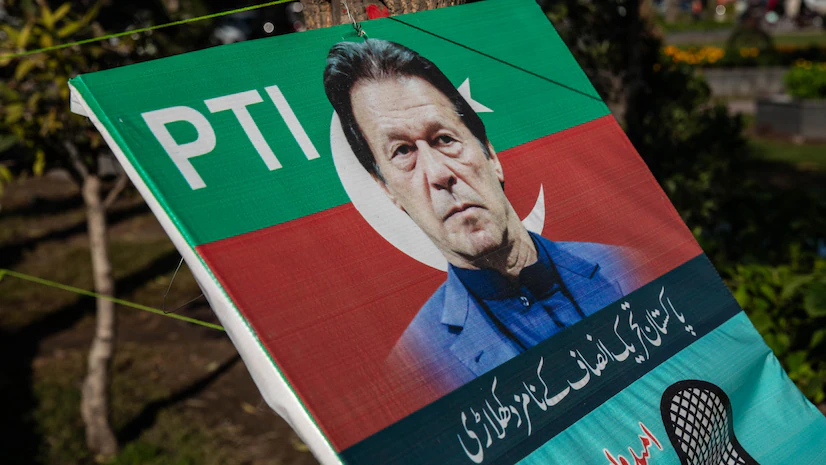
Imran Khan, who was handed a 14-year sentence for corruption by a Pakistani court on Thursday, is not the first of that nation’s former prime ministers sent to jail after falling out with the military-led establishment. Whether he will be the last depends on how his successors use the breathing room his removal from the political scene has bought them.
Khan has languished in jail since May 2023 while multiple criminal cases against him run their course. A couple have already been dismissed; he has the right to appeal this case as well. But Pakistan’s history suggests that his career will remain on hold unless he comes to an accommodation with the brass. Khan has ruled out any such compromise.
This is a familiar pattern for Pakistan. A politician rides to popularity and power with the tacit backing of the establishment. The civilians and soldiers later fall out — usually once the former are seen to infringe on the prerogatives of the latter. A judicial, legislative or actual coup follows, and another favorite is installed. Khan himself benefited from the process once, so it is hard to feel a great deal of sympathy for him now.
His successors know and fear this pattern, too: The same sword hangs over their heads. President Asif Ali Zardari, the husband of former Prime Minister Benazir Bhutto, spent 11 years in jail. He now leads one party in a motley coalition of erstwhile rivals — most of whom have had their own problems with the military at one time or another — whose sole purpose for now seems to be to keep Khan out of power.
Under Prime Minister Shehbaz Sharif, this coalition has brought the country a bit of stability over the past year. The beleaguered economy desperately needed the breathing space. Pakistani markets rose sharply on news of Khan’s sentence — not, one assumes, because traders love Sharif but because they welcome a steady political environment, and Khan and his followers are seen as agents of chaos. Pakistan’s stock market was among the world’s best performers last year, posting an 86 per cent increase in dollar terms.
The one thing the country needs as much as stability is dollars. It has long soaked up imports while exporting too little. And, in recent months, exports to some richer nations, including the European Union, have also increased steadily. Pakistan posted a current account surplus of $729 million in November, the highest in a decade.
Everyone knows that deep structural reform will be required to maintain those kind of numbers. In September, the International Monetary Fund demanded sweeping changes in exchange for a $7 billion loan that helped the country avoid default. The World Bank on Tuesday promised $20 billion in development assistance over a decade; that, too, will depend on continuing reform. The tax net will have to be widened, privatization speeded up, new energy sources found and subsidies made contingent on performance.
Normally, painful reforms demand a national consensus, which deeply polarized Pakistan is unlikely to achieve. Failing that, it would help if the leadership were trusted. Sharif and his cabinet of rivals are equally unlikely to receive such affirmation. The best they can expect from the Pakistani street is tolerance.
Nor can they count on help from outside. Pakistan has exhausted whatever international goodwill it possessed. The US would rather ignore the country; its former backers in the Arab world would rather do business with India; and even its “iron friend” China is more likely to insist on repayment for past loans than to shell out more money.
Political leaders in Islamabad thus have a narrow path to walk. They must reform without angering the three stakeholders keeping them in power: the military, investors and the street. Upset any of them enough, and the house of cards will come crashing down.
The civilians have limited time to demonstrate results. Khan’s supporters regularly take to the streets to protest his treatment. For the moment, the crowds have not been overwhelming enough to force the military to reconsider its support for the government. But, as the world saw in Bangladesh last year, generals can change their minds quickly.
Pakistan’s economy and politics have spent decades in twinned cycles of disappointment and failure. Half-hearted reform brings the economy to the brink of crisis; the military picks favorites and discards them. Sharif has been granted an unknowable amount of time to break his country out of that cycle. He shouldn’t waste it.






